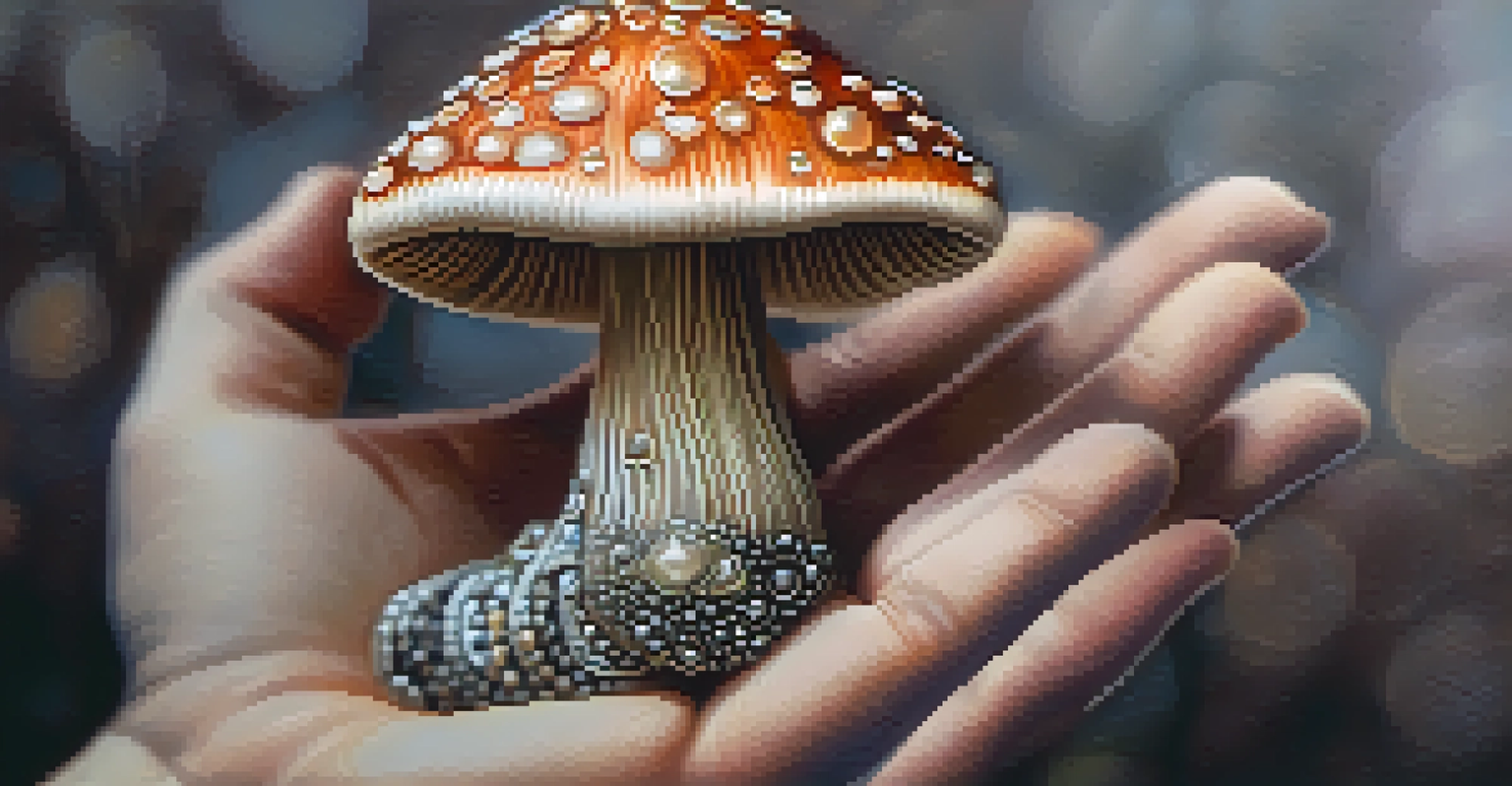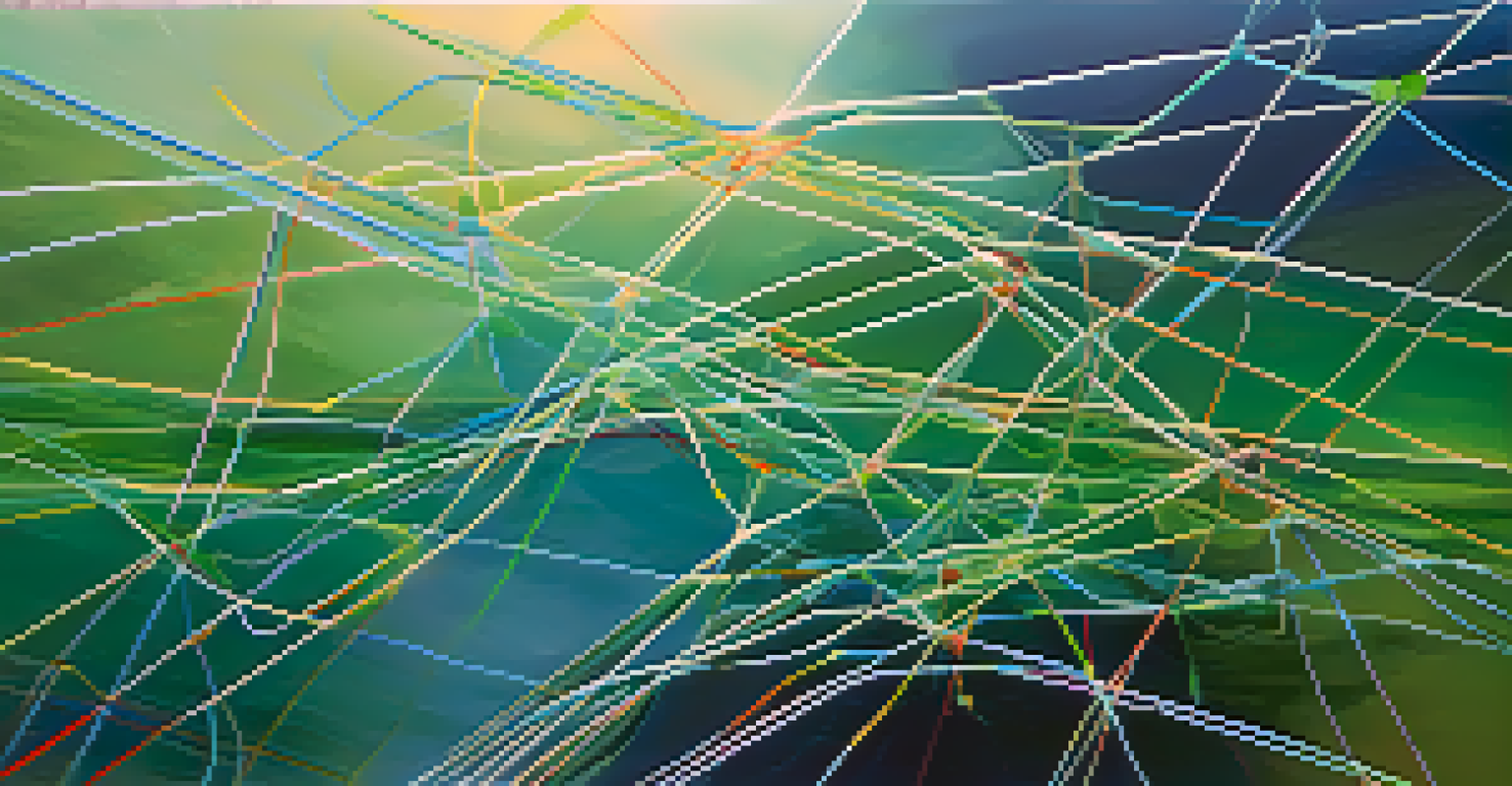The Impact of Entheogens on Personal Identity and Ethics

Understanding Entheogens: A Brief Overview
Entheogens, often referred to as psychedelics, are substances that can induce altered states of consciousness. These can include naturally occurring plants, like psilocybin mushrooms, or synthetic compounds like LSD. The term 'entheogen' comes from the Greek words meaning 'generating the divine within,' which emphasizes their spiritual and transformative potential. Many cultures have used these substances for centuries in rituals and healing practices.
Psychedelics can help us see the patterns of our lives more clearly, and perhaps even help us change those patterns for the better.
The resurgence of interest in entheogens in modern society has sparked debates about their role in personal development. As more people share their experiences, it becomes clear that these substances can lead to profound insights about the self and the world. By understanding entheogens, we can appreciate their potential impact on personal identity and ethics.
In this exploration, we will delve into how entheogens interact with our sense of self and moral frameworks. This journey will reveal how these substances not only challenge our perceptions but can also reshape our values and beliefs.
Altered States and Self-Perception
One of the most fascinating effects of entheogens is their ability to alter self-perception. Users often report experiences of ego dissolution, where the boundaries between self and others blur. This profound shift can lead to a deeper understanding of interconnectedness and a diminished sense of isolation, which is particularly valuable in today's fragmented society.

For many, these altered states can catalyze personal growth and self-discovery. Individuals might confront suppressed emotions or gain new perspectives on their life experiences. Such shifts can foster a more compassionate view of oneself and others, reshaping personal identity in significant ways.
Entheogens Alter Self-Perception
Entheogens can lead to ego dissolution, fostering a deeper understanding of interconnectedness and personal growth.
As our self-perception changes, it can influence our ethical considerations. This evolving sense of identity can lead to more empathetic behavior and a commitment to values that prioritize the well-being of others.
Entheogens and Moral Frameworks
The interaction between entheogens and moral frameworks is a complex one. When individuals undergo experiences that challenge their conventional beliefs, their moral compass may also shift. This can lead to a reevaluation of ethical principles, often resulting in a more expansive view of morality that includes a greater emphasis on empathy and compassion.
The experience of ego dissolution can foster a profound sense of interconnectedness, revealing the truth that we are all part of a larger whole.
For example, someone who once held rigid views on societal issues may find themselves more open-minded after an entheogenic experience. This flexibility can encourage critical thinking about ethics and morality, inviting individuals to consider broader perspectives and the consequences of their actions.
As people integrate these insights into their lives, their ethical decisions may become more aligned with a sense of universal responsibility. This shift can have a ripple effect, influencing not only personal relationships but also community and societal interactions.
Cultural Contexts of Entheogen Use
The cultural context in which entheogens are used plays a crucial role in shaping their impact on identity and ethics. Indigenous cultures have long recognized the spiritual significance of these substances, often incorporating them into rituals and ceremonies. This cultural lens can provide a framework for understanding the experiences and insights gained through entheogen use.
In contrast, the Western approach to psychedelics has historically been more fragmented, often focusing on recreational use without the spiritual context. However, as research into their therapeutic benefits grows, there is a burgeoning interest in integrating these practices with cultural respect and understanding.
Cultural Context Shapes Use
The impact of entheogens on identity and ethics varies significantly across different cultural contexts and practices.
By examining different cultural narratives surrounding entheogens, we can gain insight into the diverse ways they can influence personal identity and ethics. This broader perspective encourages a more nuanced understanding of their potential and implications.
Therapeutic Potential and Personal Growth
Recent studies have highlighted the therapeutic potential of entheogens in addressing mental health issues. Conditions such as depression, anxiety, and PTSD have shown promising responses to psychedelic therapy. This therapeutic use often leads individuals to confront deep-seated issues, facilitating profound personal growth and healing.
Through guided sessions, individuals can explore their thoughts and feelings in a supportive environment. The insights gained during these experiences can lead to lasting changes in self-perception and ethical understanding. Many report feeling more connected to themselves and others, which can enhance overall well-being.
As therapy using entheogens becomes more recognized, it paves the way for broader discussions about personal responsibility and ethical considerations in mental health care. This evolving landscape encourages us to think critically about how we approach healing and connection.
Challenges and Ethical Dilemmas
Despite the potential benefits, the use of entheogens is not without challenges and ethical dilemmas. Issues such as accessibility, legality, and the potential for misuse must be addressed. Not everyone has the same opportunities to explore these substances, which raises questions about equity and justice in access to mental health resources.
Additionally, the commercialization of entheogenic experiences poses ethical questions. As these substances gain popularity, there is a risk of them being stripped of their cultural significance and used primarily for profit. This commodification can undermine the spiritual and personal growth aspects that are essential to their use.
Therapeutic Benefits for Healing
Emerging studies indicate that entheogens hold therapeutic potential for mental health issues, promoting personal growth and well-being.
Navigating these challenges requires a thoughtful approach that respects cultural contexts and prioritizes ethical considerations. By fostering open dialogues, we can create frameworks that support responsible use while maximizing the potential benefits of entheogens.
Integrating Insights into Daily Life
One of the most significant aspects of entheogenic experiences is the challenge of integrating newfound insights into daily life. After a transformative experience, individuals often grapple with how to apply their revelations in practical ways. This integration process is crucial for ensuring that the insights lead to positive changes in behavior and ethical considerations.
Practices such as journaling, meditation, and community discussions can facilitate this integration. By reflecting on their experiences, individuals can better understand how their altered perceptions influence their values and actions. This ongoing process encourages continuous personal growth and ethical development.

Ultimately, the goal is to transform insights into actionable steps that enhance personal identity and ethical frameworks. By doing so, individuals contribute more meaningfully to their communities and society, embodying the values they have come to embrace.